Stuck between Hope and Despair - The Global Crisis of Enforced Disappearance
The 60th Session of the Human Rights Council
08 September - 08 October 2025
Item 3: Interactive dialogue with the Working Group on enforced disappearances
16-17 September 2025
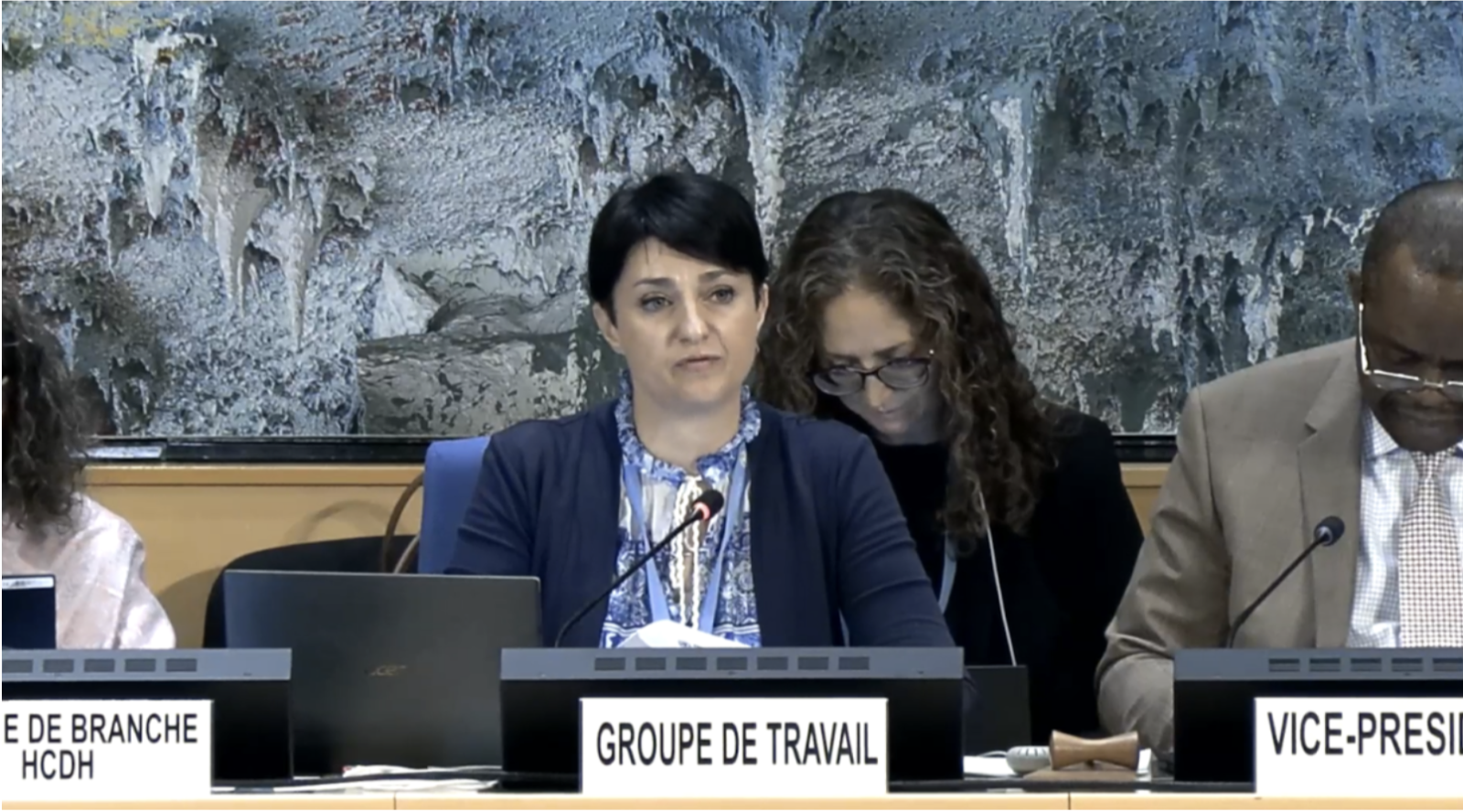
By Muriel Imhof / GICJ
Executive summary
On 16 September 2025, during the 60th Session of the Human Rights Council, Gabriella Citroni, the Chairperson of the Working Group on Enforced or Involuntary Disappearances presented her report on enforced or involuntary disappearances which followed by an Interactive Dialogue with Member States and NGOs on 16 and 17 September 2025.
The report underscored the global occurrence, the hindrances to the investigations by the
Working Group on Enforced or Involuntary Disappearances, and broad usage. Enforced disappearances continue in armed conflicts, during elections, and in the context of migration and deportations. Enforced disappearances are also committed in transnational transfers and under the guise of counter-terrorism activities in Pakistan and in Egypt. The A/HRC/60/35 report underlines that many cases persist without resolution; many victims and families are left without truth, justice, or reparations. The report presses States to fulfil their obligations under international law to prevent, investigate, respond, and ensure accountability and support for victims.
Geneva International Centre for Justice (GICJ) strongly condemns the ongoing practice of enforced disappearances worldwide. We reaffirm that enforced disappearances constitute a grave violation of international law, and in some circumstances, amounts to a crime against humanity. GICJ urges all States to:
- Ratify and fully implement the International Convention for the Protection of All Persons from Enforced Disappearance.
- Criminalise enforced disappearances in national legislation and ensure independent investigations are conducted.
- Provide full cooperation to international mechanisms, including the Committee on Enforced Disappearances (CED) and the Working Group on Enforced or Involuntary Disappearances (WGEID).
- Ensure the protection and participation of victims' families.
- Guarantee reparations and psychosocial support for survivors and affected families.
In conclusion, GICJ calls on the international community to increase pressure on States that continue to employ enforced disappearances as a tool of control or conflict.
Background
Enforced disappearances are a widespread global problem and are not restricted to a specific region of the world. Enforced disappearances were originally a crime committed by military dictatorships, but since then the perpetrators of enforced disappearances have evolved. Currently enforced disappearances are being perpetrated in complex situations of internal conflict, especially as a means of political repression of opponents. Further enforced disappearances are used as a harassment strategy against human rights defenders, relatives of victims, witnesses and legal counsel. [1] Often, there is no evidence to prove the death of a missing individual and the circumstances leading to the arrest or detention remain ambiguous. Records pertaining to arrests and detentions are not made available to family members and any knowledge concerning arrests and detentions which have subsequently resulted in a person's disappearance are generally denied by responsible authorities. [2] First, the perpetrators want to eliminate real or perceived enemies. Second, they seek to spread a unique form of terror – through which they affect not only the families, who are trapped in a state of ambiguous loss, but they also affect the broader society and spread helplessness and fear. Third, because of the denial of any information about the disappeared person and the commission of the crime in the first place, the perpetrators can avoid any consequences, especially criminal charges. [3]
The first treaty that concerns itself with enforced disappearances is the United Nations Declaration on the Protection of all persons from Enforced Disappearance from 1992. However, the pressing need for a universal treaty to effectively prevent and eradicate this crime and the existence of relevant gaps in the international legal framework for the protection from enforced disappearances made it necessary to adopt a new convention. The gaps in the international legal framework include the lack of recognition of a specific human right not to be subjected to enforced disappearance; the absence of a legally binding universal obligation on the applicability of universal jurisdiction; and many loopholes regarding measures of prevention. The International Convention for the Protection of all Persons from Enforced Disappearances was adopted in 2006, entered into force in 2010 and with it the Committee on Enforced Disappearances was established.
The Working Group on Enforced or Involuntary Disappearances is tasked with assisting families in determining the fate or whereabouts of their family members who have reportedly disappeared. In that humanitarian capacity, the Working Group serves as a channel of communication between family members of victims of enforced disappearances and other sources reporting cases of disappearances, and the Governments concerned. The Working Group has a preventive role, by assisting States in overcoming obstacles to the realisation of the Declaration on the Protection of all Persons from Enforced Disappearance. This is done both while carrying out country visits and by providing advisory services, when requested. [4]
In 2025, concerns grew over the U.S.'s lack of transparency and state accountability, particularly in relation to the enforced disappearances of over 200 Venezuelan migrants, many with pending asylum claims, who were removed and transferred to El Salvador, where their whereabouts are unknown. Many human rights advocates continue to file urgent reports with the UN Working Group on Enforced or Involuntary Disappearances. Even in countries with perceived “strong rule of law” traditions, the problem still persists, and this also highlights that collaborations, as well as covert transfers, may only enable more violations with impunity.
Summary of the UN Report
The report of the Working Group on Enforced or Involuntary Disappearances (A/HRC/60/35) offers an overview about the cases, clarifications, communications, country visits, and thematic observations during the reporting period. It also provides statistical summaries of all cases received since 1980.
Between May 2024 and May 2025, 1.278 cases were transmitted by the Working Group on Enforced or Involuntary Disappearances to Governments in 38 States. During the reporting period, 233 cases were clarified. However, many cases transmitted since 1980 remain unresolved. The report of the Working Group on Enforced or Involuntary Disappearances (A/HRC/60/35) highlights that there is a lack of adequate information from governments in clarifying cases of disappearance, as the majority of cases were clarified through information by non-governmental sources. Of the 233 cases, 62 were clarified on the basis of information provided by governments and 171 on the basis of information provided by sources.
The Working Group carried out a country visit to Lithuania (20-26 November 2024) and assessed the implementation of the recommendations it had made following its country visit to Cyprus in April 2022. Furthermore, the Working Group provided its expert opinion and technical cooperation to Peru, Bangladesh, Colombia, and Chile.
The report provides a summary of the thematic study on the contextual factors in which enforced disappearances have occurred in relation to the defence of land, natural resources and the environment. It highlights how enforced disappearances are used as a tool to target human rights defenders, communities, Indigenous Peoples and other actors who advocate for the preservation of their land and natural resources or resist or protest against environmentally harmful projects, and the impact that has on individuals, families, communities and countries. Enforced disappearances are often rooted in legal and political frameworks that privilege corporate and economic development objectives over human rights obligations. Frail national legal frameworks and excessive reliance on voluntary due diligence mechanisms – where companies clearly have greater resources to defend themselves – hinder effective corporate accountability.
The report summarised the study on the use of universal criminal jurisdiction in cases of enforced disappearance, considering the crucial importance such jurisdiction plays in combating impunity. The study debunks the assumption that only States that are parties to certain treaties might be required to apply universal jurisdiction.
The Working Group found that universal jurisdiction prosecutions and trials still rarely proceed in cases of enforced disappearances due to multiple reasons, including the failure of many States to codify enforced disappearances as a separate crime under their domestic legislation. Where States codify it separately, they retain restrictive formulations that imply that many acts of enforced disappearances remain outside the scope of domestic criminal law and the jurisdiction of national courts. Where the crime has been codified, overly restrictive interpretations have prevented the exercise of universal jurisdiction. The Working Group also found that often, enforced disappearances are charged as ancillary crimes. In many instances, the principle of immunity (personal or functional) acts as an obstacle to commencing proceedings under universal jurisdiction. The Working Group notes how the establishment of specialised institutions mandated to deal with crimes under international law, including enforced disappearance, has been instrumental in ensuring effective investigations and prosecutions.
The Working Group continued to observe worrying trends, such as: (a) the use of transnational repression and its linkages to instances of enforced disappearance; (b) disappearances committed in the context of migration, including as a result of pushbacks and mass deportations; (c) enforced disappearances committed under the guise of counter-terrorism activities; and (d) enforced disappearances committed in the run-up to and during electoral processes.
Enforced disappearances are happening not just in conflict or authoritarian settings, but also in contexts where rule of law is considered stronger, through covert transfers, alleged complicity, or lack of oversight.
The Working Group points to deficiencies in legal frameworks, delays in investigations, lack of access to judicial remedies, and weak preventive measures.
The Working Group in this report urges States to take various steps, including:
- Legal and institutional reforms to ensure that disappearances are criminalised in law, including adopting domestic criminal legislation, codifying enforced disappearances as an autonomous offence, and removing procedural obstacles to such prosecution, including statutes of limitations.
- Establishing regularly trained and adequately funded specialised multidisciplinary units for the investigation and criminal prosecution of crimes under international law, with a specific mandate for universal jurisdiction cases.
- The report stresses transparency and international cooperation: for example enabling joint structural investigations, strengthening mutual legal cooperation, inter-State cooperation and full, frank and fair evidence sharing, both during the search for disappeared persons and during criminal investigations.
- Inclusion of victims and civil society in the creation of networks; the safe, effective and dignified participation of victims of enforced disappearances in investigations and trials.
The A/HRC/60/35 report underlines that enforced or involuntary disappearances remain a serious and ongoing global human rights concern. Despite decades of work, many cases persist without resolution; many victims and families are left without truth, justice, or reparations. The report presses States to fulfil their obligations under international law to prevent, investigate, respond, and ensure accountability and support for victims.
Interactive Dialogue
Opening Statement of the Working Group
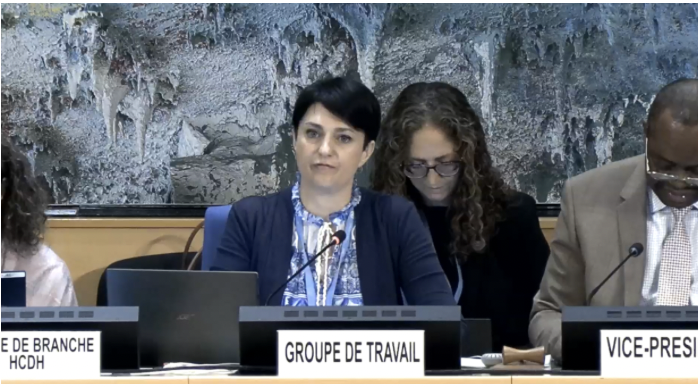
Gabriella Citroni, the Chairperson of the Working Group on Enforced or Involuntary Disappearances, opened her statement with emphasising that the numbers she will report stand for the suffering of thousands of families and entire communities, stuck between hope and despair, often facing threats and reprisals. She highlighted the transmission of 1,280 new cases of Enforced Disappearances to 38 States, including 927 transmitted under the urgent procedure to 17 States, 9 transmitted cases to the de facto authorities in Libya, Myanmar, northeast of the Syrian Arab Republic and Yemen.
Gabriella Citroni explained that many of the reported cases concern armed conflicts in both Ukraine and Gaza, the figures as well as the detected patterns are suggestive of the existence of widespread or systematic attack against civilian populations, which amounts to a crime against humanity. Similar concerns are raised with respect to Burundi, Venezuela and Tanzania in the context of electoral violence. It is thus extremely troublesome that none of the States concerned in the situations responded to WGEID’s requests for information on the whereabouts of more than 3,000 people. The Chairperson stated that by not responding to the Working Group, these States are failing the relatives of those who disappeared, prolonging their anguish, which amounts to ill treatment.
The cases also concern disappearances committed in the context of migration including as a result of push backs among others in Tunisia and Libya in the context of deportations from the United States of America to third countries such as El Salvador and Venezuela and in the context of transfer of transnational transfers in particular involving China, Cambodia, Lao People's Democratic Republic, Malaysia, Myanmar, Thailand and Viet Nam. The Working Group also transmitted cases of enforced disappearances committed under the guise of counterterrorism activities including across Pakistan and in Egypt.
During the reporting period, the Working Group clarified 231 cases in 20 States. In 62 instances, this was thanks to information provided by governments.
Gabriella Citroni explained their inability to fully implement the mandate due to the ongoing U.N. liquidity crisis. While they received support including through voluntary financial and in-kind contributions, it is not enough. The Working Group now has a backlog of around 8,000 cases to be examined and processed.
Gabriella Citroni expressed that while these circumstances show the existence of dire need, WGEID are asked to do more with less. She called this a “mockery in the face of those who turn to the Working Group often as their last hope to establish the fate and whereabouts of those loved ones”. The non-governmental organisations, human rights defenders and the lawyers who support these victims undertake their work in increasingly hostile and dangerous environments. This is further compounded by cuts to humanitarian aid and funding as well as restrictive legislation curtailing their activities.
Due to the liquidity crisis in 2024, WGEID could carry out only one country visit to Lithuania. The Working Group commended Lithuania for having put in place a robust legal framework, among others by criminalising enforced disappearances as a stand-alone crime in line with international standards. At the same time, the Working Group noted with concern the absence of official acknowledgement or public apology from Lithuanian authorities for their role in extraordinary renditions and the corresponding Central Intelligence Agency secret detention programme. Gabriella Citroni remarked that no substantial progress has been made in relation to criminal investigations and prosecutions as well as victims' recognition related to these enforced disappearances.
Gabriella Citroni acknowledged the difficult situation Lithuanian authorities have to deal with, especially in the current geopolitical context with increased migration, particularly from Belarus and Ukraine. She reiterated WGEID’s concerns at the practice of pushbacks which effectively removes the person subjected to it from the protection of the law and exposes them to heightened risk of disappearance.
Gabriella Citroni also summarised the follow-up report on the 2022 country visit to the Republic of Cyprus. While progress in the implementation of some recommendations had been made, she noted that many have only been partially addressed or remain unaddressed.
Despite the existence of institutional procedures, investigations appear to be constrained to the identification stage and have not translated into accountability measures. The report also highlights concerns related to the continued practice of pushbacks and collective exposures of migrants without an assessment of their protection needs.
Gabriella Citroni reported that the Working Group has received invitations to carry out a country visit to Bangladesh, Canada, Guatemala, Maldives and the Republic of Korea. The visit to the Republic of Korea was scheduled to take place in June 2025 and due to the liquidity crisis it had to be halted. With the cancellation of this visit, WGEID was able to preserve three annual sessions and in particular the one conducted in Thailand in May 2025. She announced that in 2026 WGEID will hold a session in Abidjan, Cote d'Ivoire.
The Working Group has offered technical assistance and cooperation to governments and institutions, in particular WGEID conducted a technical visit in June 2025 to Bangladesh.
Gabriella Citroni presented the study on enforced disappearances in the context of the defence of land, natural resources and environment. The Working Group found that these disappearances often occur in contexts marked by systematic discrimination, structural violence, colonial legacies and environmental racism and frequently entail their responsibility of business enterprises and financial institutions besides States. These disappearances are used as a tool of repression to silence the intersectionally marginalised population, mainly indigenous peoples, and to exclude them from decision-making and undermine the efforts to shape sustainable futures. The disappearances of these defenders remain a global concern, particularly where economic development is prioritised over human rights with transnational companies based in economically developed countries often refusing to cooperate with investigations in economically developing countries.
Gabriella Citroni also presented the study on the use of universal jurisdiction in cases of enforced disappearances. The Working Group illustrated how this tool is crucial to promote accountability and to provide a victim-centred response in the face of a growing number of cases and an enduring situation of impunity. The study underscored the nature of the prohibition of enforced disappearances requiring States to take all necessary measures to hold perpetrators accountable. Key recommendations include establishing specialised institutions, conducting structural investigations, enhancing international cooperation, amending domestic legislation and securing safe and meaningful participation of victims, witnesses and civil society in these legal processes.
Gabriella Citroni emphasised a number of effective measures that can easily be adopted by States including the ratification of the international convention for the protection of all persons from enforced disappearance and the recognition of the competence of the Committee on enforced disappearances to receive complaints. She acknowledged Bangladesh and Poland who became state parties in the past year.
Gabriella Citroni cautioned that while there was a lot of participation and States expressed significant pledges during the first ever work congress on enforced disappearances in January 2025, more than eight months later, little progress can be registered and no additional ratification or accession to the convention was deposited. She concluded that once more, stark needs are met by unfulfilled promises. Gabriella Citroni closed her statement with the appeal that “[v]ictims of enforced disappearance deserve better. We owe them more and this is our common responsibility.”
Statement from the Country concerned: Lithuania
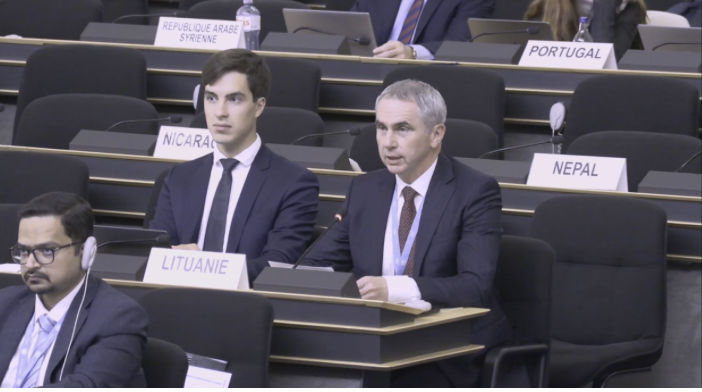
The representative of Lithuania reaffirmed that any act of enforced disappearance is an offence to human dignity and a flagrant violation of human rights and fundamental freedoms. He expressed that States are responsible for properly investigating such cases, holding perpetrators accountable and ensuring justice for victims. He stated that Lithuania has consistently strongly supported the objective of the Human Rights Council and its special procedures to serve as an effective platform for the global protection and promotion of human rights. In this context, Lithuania issued a standard invitation to all UN special procedures in 2001.
The representative of Lithuania confirmed that while they remain open to further close cooperation with the UN human rights mechanisms, they are concerned that in some States enforced disappearances are used as a tool to silence any dissent and intimidate civil society by targeting opposition members, human rights defenders and other activists.
He stated that Lithuania has established a robust legal framework to prevent the risk of enforced disappearances fully aligned with international standards. Part of that is the ratification of the international convention on the protection of all persons from enforced disappearance and the Rome Statute of the international criminal courts. Lithuania has also recognised the competence of the committee on enforced disappearances to receive and examine individual interstate complaints pursuant to articles 31 and 32 of the International Convention for the Protection of All Persons from Enforced Disappearance [5].
The representatives appreciated the Working Group's recognition of Lithuania's geopolitical context and the challenges it poses. The representative explained that in recent years, Lithuania has experienced a significant increase in the arrival of migrants, including irregular border crossings and instrumentalisation of migration flows deliberately orchestrated by Belarus.
He added that Belarus has been enticing foreign nationalists to its territory, issuing them tourist visas, transporting them to the EU border and eventually employing pushing practices to force them to cross the border illegally. He described that by encouraging migrants to travel to Belarus and facilitating the illegal crossing into neighbouring countries, Belarus has exposed them to a risk of serious abuses and increased their vulnerability, including a heightened risk of enforced disappearance. The representative of Lithuania confirmed that Lithuania takes its international obligations very seriously and remains firmly committed to protecting refugees, especially those fleeing conflict and persecution in their countries of origin.
He concluded by stating that the recommendations provided by the Working Group following its visit to Lithuania will help to further improve the protection of all persons from the risk of enforced or involuntary disappearances. He reiterated Lithuania's willingness to continue close cooperation and constructive dialogue with the Working Group within the UN human rights framework and beyond.
Statements from other participating countries
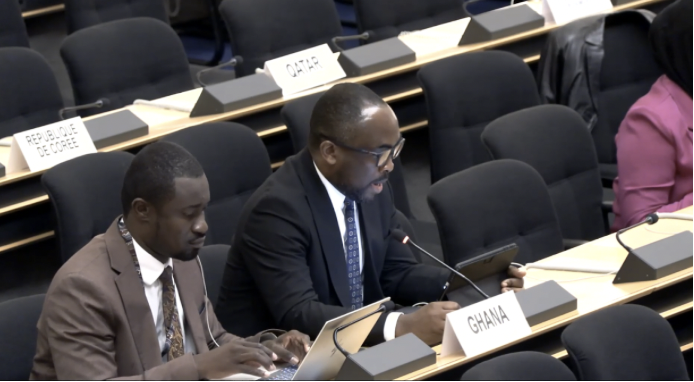
The representative of Ghana on behalf of Group of the Africa Group expressed concern that enforced disappearances remain a global phenomenon in Africa, especially in the contents of the defence of land, natural resources and the environment. At the regional level, the African Union has taken important steps including the adoption of the EU transitional justice policy and the African Convention on Human and People's Rights.
The African Group welcomed the Working Group's study of the use of universal criminal jurisdiction in cases of enforced disappearances to promote accountability.
The representative underscored the importance of approaches that are victim-centred, inclusive and respectful of national contexts. He reiterated the value of interstate cooperation and closer coordination between UN mechanisms and the African Convention on Human and People's Rights to eradicate enforced disappearances.
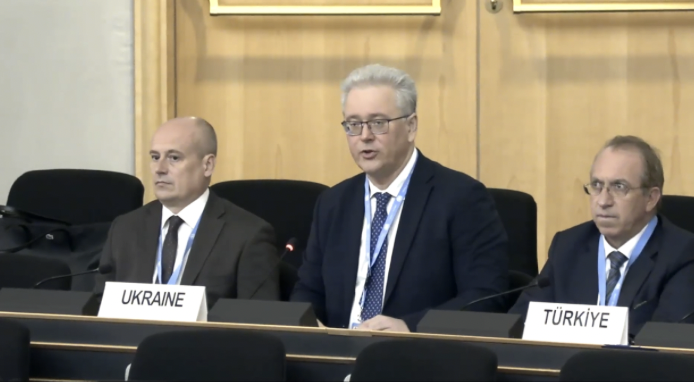
The representative of Ukraine on behalf of a group of 32 States commended the Working Group for the work carried out. He stated that since 2014 and particularly after February 2022, over 70,000 people including 20,000 children have been registered as missing in Ukraine. He explained that Russia's occupying forces are increasingly and systematically abducting individuals, arbitrarily detain them in comunicado and subject them to physical and psychological torture and ill treatment.
The representative strongly condemned the reportedly systematic use of enforced disappearances by Russia in the temporary occupied territories of Ukraine and its refusal to engage with the Working Group, provide information on Ukrainian prisoners of war, civilian detainees and deported children in violation of international humanitarian law and human rights law.
He called on the Working Group to continue its active monitoring on the situation in Ukraine, including through urgent actions and thematic reporting, to urge Russia to grant access to all international monitoring missions in all temporarily occupied territories to support Ukraine's efforts to document these crimes and ensure accountability at both the national and international levels.
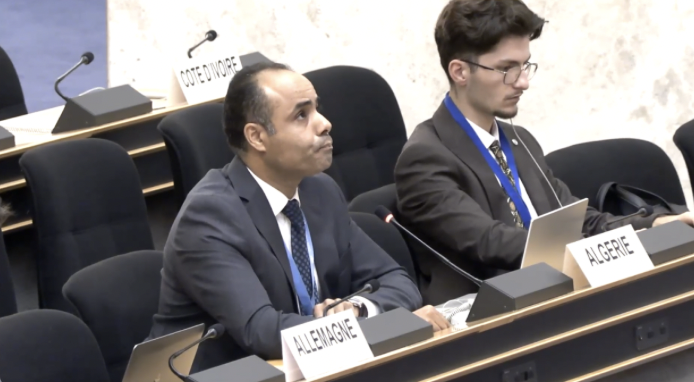
The representative of Algeria on behalf of a group of the Arab group highlighted that the Gaza Strip and the occupied Palestinian territories face a wave of arrests of civilians from the occupying power Israel, which has adopted a systematic policy of enforced disappearances against Palestinians. He called on relevant UN mechanisms to combat this crime and to support the search for all victims. The representative described that these are systematic attacks on Palestinians and systematic violations of human rights which are tantamount to international crimes.
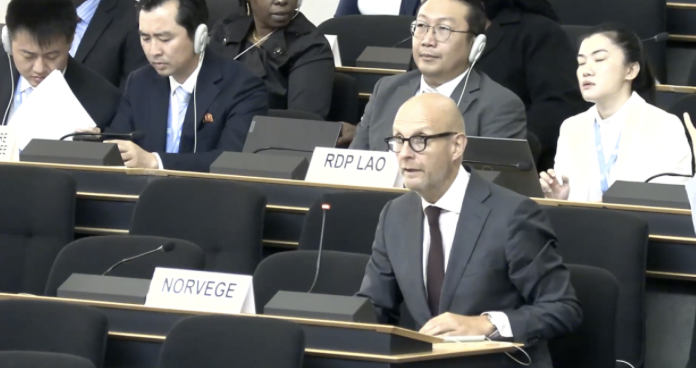
The representative of Norway on behalf of a group of the Nordic Baltic countries emphasised that thousands of people disappear due to their civil or political engagement. He stated that some States use enforced disappearances as a tool to intimidate and silence civil society. It goes against the rule of law and may constitute crimes against humanity or war crimes.
The representative echoed the report that enforced disappearances are also used as a tool to target human rights defenders, communities, indigenous peoples and other actors who advocate for the preservation of their land and natural resources.
He agreed that both States and non-state actors including enterprises are responsible for such human rights violations and abuses. States are responsible for properly investigating enforced disappearances holding perpetrators to account and ensuring justice for victims. Failure to do so may lead to cycles of impunity and the erosion of social cohesion. Addressing enforced disappearances is therefore a vital contribution to peace and stability.
He asked the Working Group what are the most effective mechanisms that the international community can use to hold States accountable for enforced disappearances?
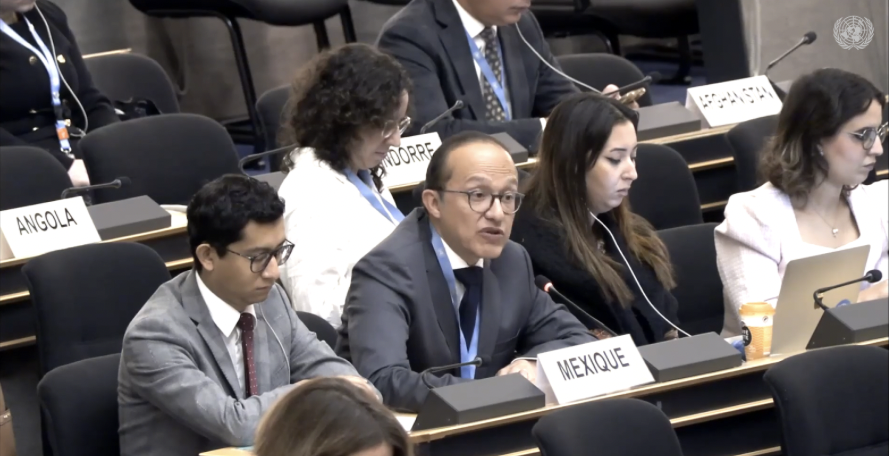
The representative of Mexico reiterated their commitment to the prevention, investigation, punishment and eradication of enforced or involuntary disappearances. He stated that searching for persons is one of the government's top priorities and in recent years Mexico has strengthened its institutional and budgetary frameworks. The national search commission and 32 local commissions work constantly with families and associations and have established fora for dialogue and coordination with them. He recounted that the national strategy for mass search set up in 2023 has led to enhanced technical capacity, a stronger national network of searchers and enhanced human identification techniques.
The representative paid tribute to the courage of families, particularly mother searchers whose efforts have been vital for more effective policies. He described that Mexico provides specific protection measures to those mothers, journalists and human rights defenders.
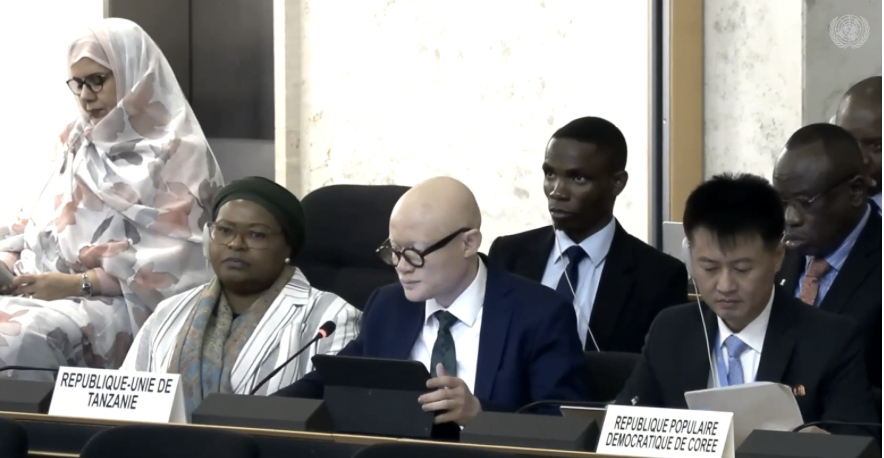
The representative of the United Republic of Tanzania aligned with the statement delivered by Ghana on behalf of Africa Group.
He noted that the two outstanding cases are under review by the relevant authorities and updates will be provided to the Working Group. He affirmed that Tanzania upholds freedom of expression and press freedom and continues to strengthen accountability through reforms in the media sector and constructive engagement with stakeholders. He followed up that allegations against the government for enforced disappearances or systematic violence against journalists, civil society or political parties are unfounded and as such acts are neither tolerated nor condoned under Tanzanian law.
The representative reaffirmed Tanzania’s commitment to ensure that the forthcoming general elections in October 2025 are conducted in a free, fair and peaceful manner with mechanisms in place to guarantee the safety and independence of journalists and all stakeholders.
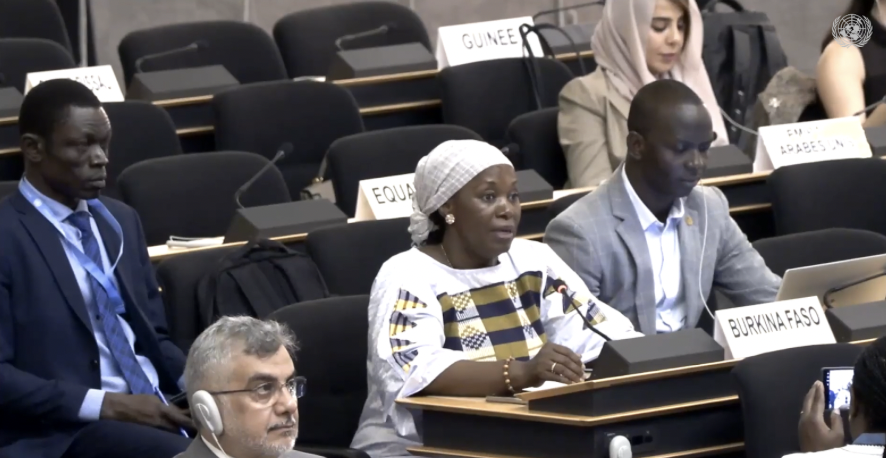
The representative of Burkina Faso stated that enforced disappearances are considered to be a serious crime in Burkina Faso, which is punished under the criminal code and can be subject to life in prison for perpetrating it.
She described that the National Human Rights Commission receives individual and collective complaints about allegations of enforced disappearances and conducts investigations into them. It can also provide advice to victims and legal support.
She adds that an interministerial Working Group has been set up in order to facilitate investigations into human rights violations as part of the counterterrorism operations.
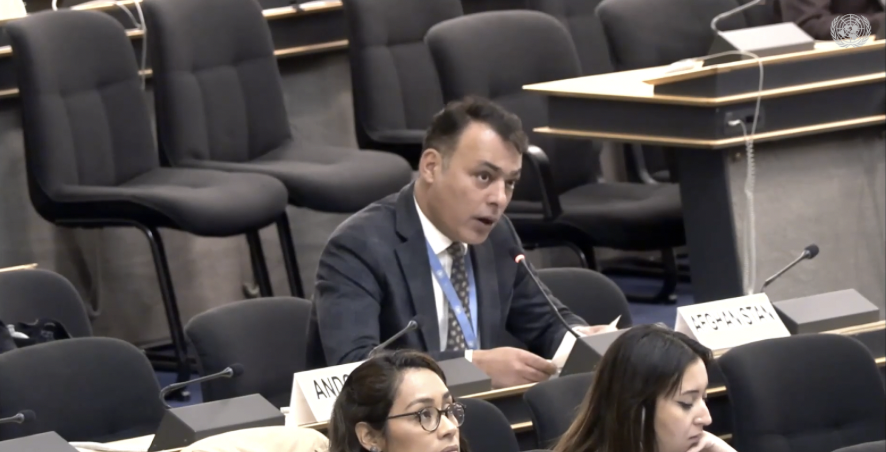
The representative of Afghanistan placed the focus on the enforced disappearances at the hands of the Taliban. He described that anyone perceived to be in the Taliban's control are targeted and hundreds of women, former security forces and human rights activists are still unaccounted for. He stated that the low number of cases submitted to the Working Group do not reflect the true widespread and systematic nature of enforced disappearances in Afghanistan and the reporting and the lack of documentation rendered these abuses invisible.
He emphasised that the enforced disappearances of women from public life are a part of the Taliban's systematic pattern of gender persecution.
The representative stressed that a core motive for continuing the investigation of Taliban's leader at the ICC is the pursuit of truth about the fate of victims of enforced disappearances as stated in the recent report by OHCHR.
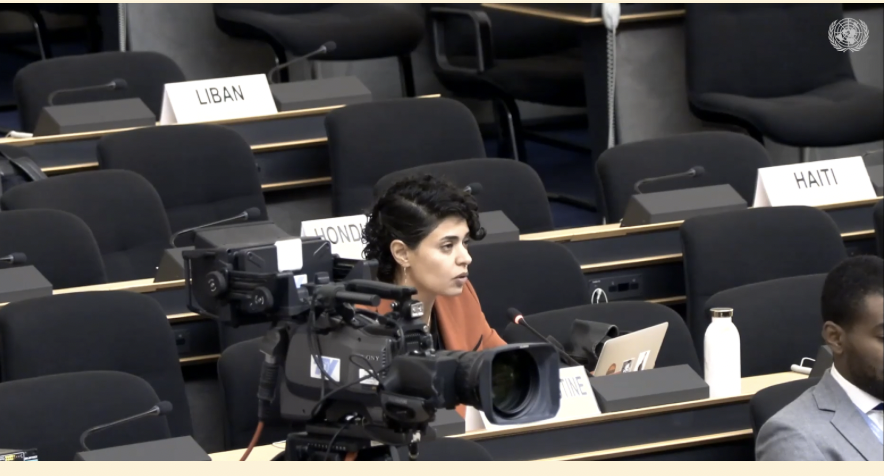
The representative of the State of Palestine described Israel as a genocidal power that has used every possible tool of warfare available to it with the complicity of several Member States to dehumanise and destroy the Palestinian people. She described that thousands of Palestinians throughout Palestine but particularly in Gaza have been arbitrarily detained, forcibly disappeared, their names and locations withheld. She highlighted the reports, videos and testimonies of systematic torture, sexual violence and abuse in detention. She stated that field executions have been documented with bodies uncovered in mass graves blindfolded, handcuffed and executed in cold blood. The representative stressed that these crimes are not isolated acts, but deliberate and systematic.
As torture and forced disappearances constitute war crimes and crimes against humanity, the greatest challenge facing the international system is impunity. She stated that unless the double standards and racist application of international law end, the repetition of atrocity crimes including genocide will continue. In this context, she called on the Working Group to employ the correct legal terminology when describing the situation - not merely a conflict or hostilities, but a genocide.
She reiterated that the obligation now falls upon the States to impose sanctions and arms embargoes and to ensure that all available measures of accountability are pursued without delay.
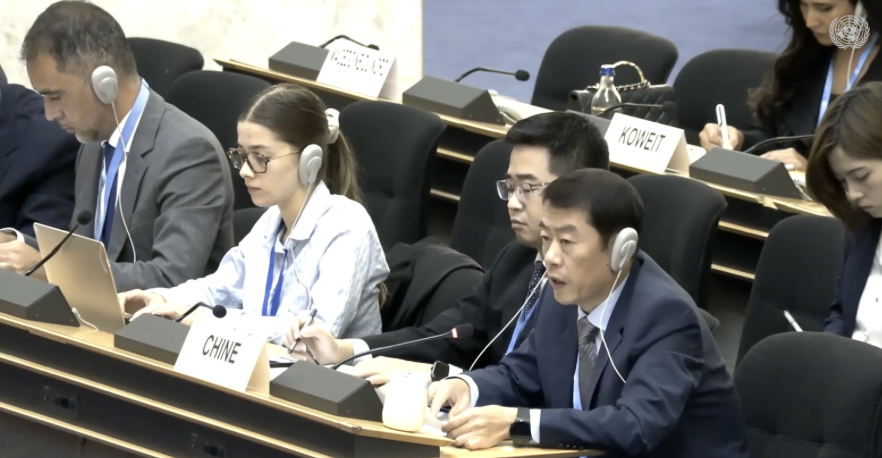
The representative of China expressed that China is a country governed by the rule of law and firmly opposes enforced disappearances. He firmly opposed the Working Group's disregard of the authoritative information provided by China and its slanderous misrepresentation of China's lawful case handling and routine law enforcement activities.
The representative described the cases mentioned by the Working Group as “lies peddled by anti-China forces overseas” that hold no sway in China.
He stated that the cross-border repression is a typical example of such lies fabricated by ill-intentioned forces seeking to smear and attack China's normal law enforcement and judicial cooperation. He reaffirmed that China conducts such cooperation with other countries in strict accordance with their law and judicial sovereignty, and ensures the lawful rights and interests of persons involved. He urged the Working Group to adhere to the purposes and principles of the UN charter, respect basic facts and act impartially and objectively in strict accordance with the mandate given by the council and the code of conduct for special procedures.
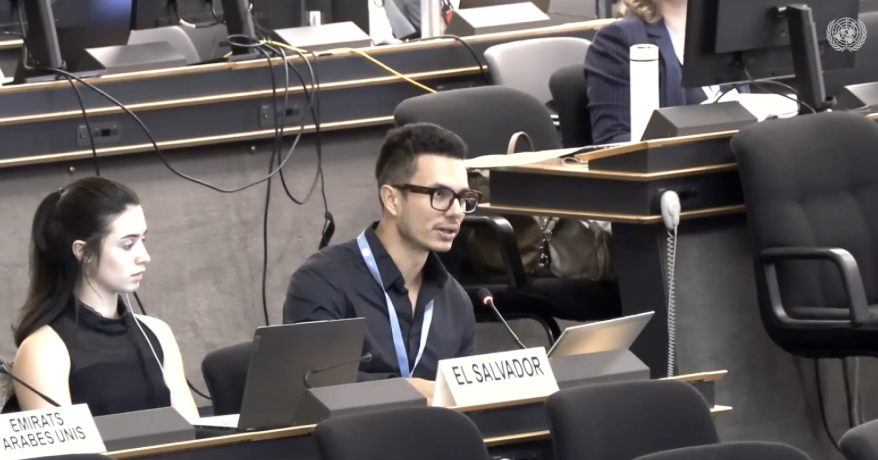
The representative of El Salvador stated that El Salvador is firmly committed to human rights and considers transparent and proactive cooperation with special procedures to be one of the cornerstones of their policy. Due to that El Salvador responded in detail and in timely fashion to every concern raised by the Working Group.
He expressed the need for the latest information regarding cases registered, including their personal data and the names of family members, to conduct serious, effective and impartial investigations.
The representative rejected the idea that there are inhumane detentions in El Salvador as stated in the report. He concluded that the conditions in prisons are humane, which have been corroborated by independent organisms, including the office of the High Commissioner for Human Rights.
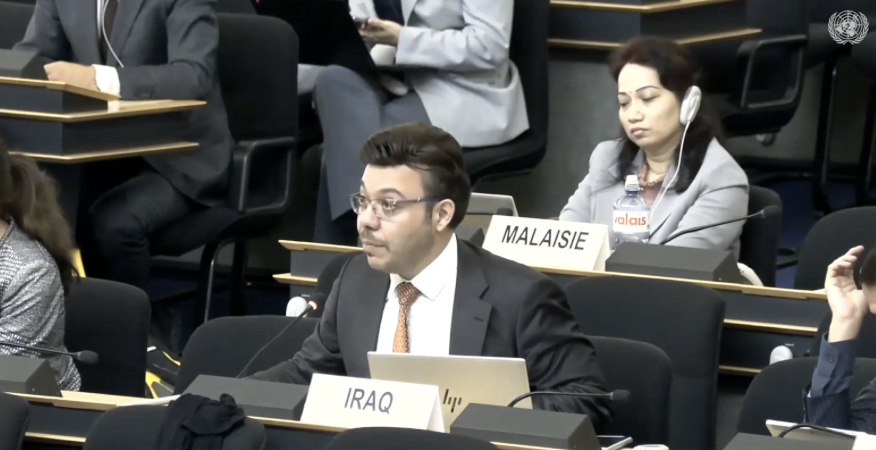
The representative of Iraq noted that the government inherited the cases referenced in the report by the bygone regime before 2003. He shared that the government is finalising the unified national register on the missing persons.
He reaffirmed Iraq’s commitment to supporting the mandate of the Working Group to reveal the fate of the enforceably disappeared persons and to seriously address all the communications submitted.
The representative asked the Working Group what are the optimal methods that must be adopted by the government of Iraq to reveal the fate of those cases.
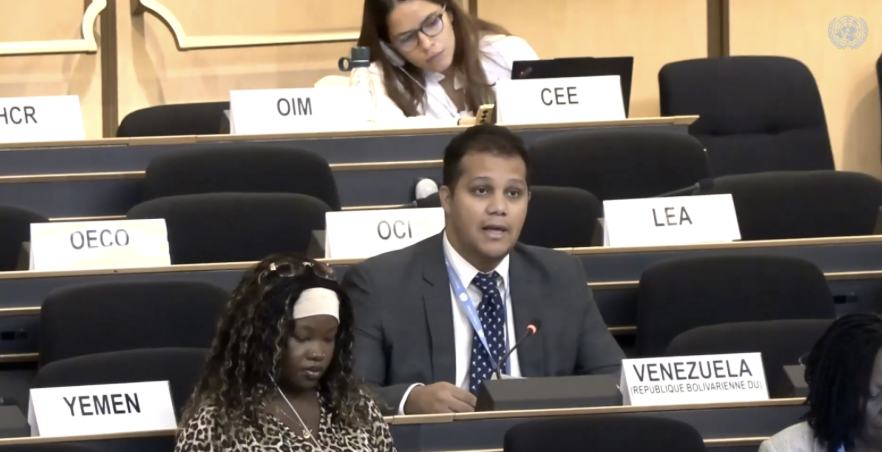
The representative of the Bolivarian Republic of Venezuela reiterated the protection of personal liberty by the constitution of Venezuela that prohibits any civil or military authority even in the state of emergency to permit or allow enforced disappearances of persons.
The criminal code provides for severe sanctions for those who commit this grave crime.
The representative rejected the claims and allegations of the Working Group echoing information which seeks only to promote negative politically motivated narratives and opinions against our country.
He described that the information is financed by the same sources that are deploying submarines off the coast of Venezuela and threatening peace in their region.
He urged the Working Group to correct those practices to develop their work as per the code of conduct working on the basis of constructive dialogue and cooperation with States and true to the principles of objectivity, impartiality, non-selectivity with respect for sovereignty and non-interference in internal affairs.
The representative reaffirmed Venezuela’s willingness to continue cooperating with the special procedures to direct their actions in strict compliance with UN charter and the code of conduct in directing and regulating its work.
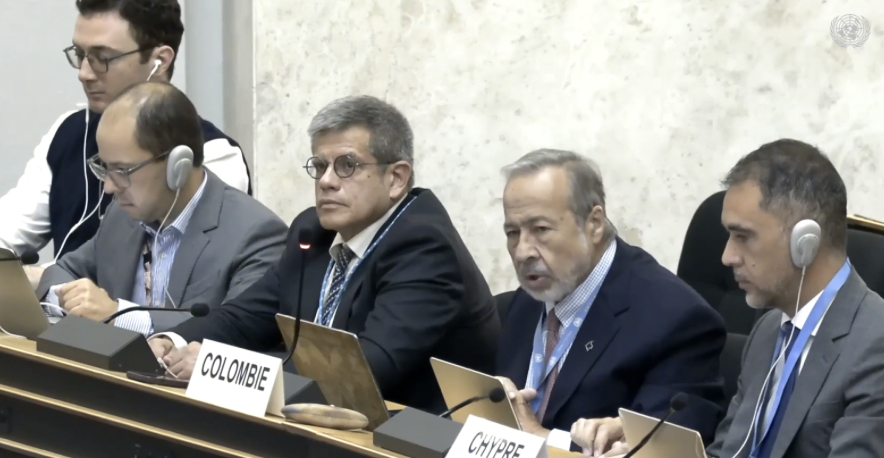
The representative of Colombia shared that on 16.09.25 the Special Commission for Peace issued its first guilty verdict for crimes of six members of the former guerilla group of the Fuerzas Armadas Revolucionarias de Colombia (FARC). Each of which was found guilty of grave deprivations of liberty, killing and enforced disappearances in addition to other grave crimes and convicted to a symbolic sentence of eight years.
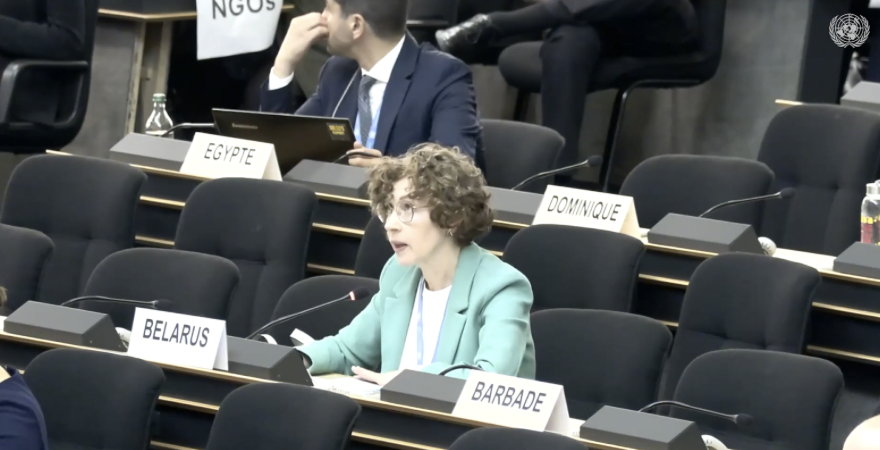
The representative of Belarus expressed that law enforcement devotes priority attention to investigating abductions and disappearances. He categorically rejected the baseless statement by the Working Group with respect to the situation with violent disappearance in Belarus and caution against the practice of sending requests to States without due verification of the sources of such and content of such information. She describes the accusations against Belarus of instrumentalising migration as outrageous and a lie.
The representative explained that the situation on the EU’s border is due to the EU's unwillingness to cooperate, placing pointless fences and current EU legislation that runs counter to international commitments and creates risk of forced disappearance.
She highlights that an analysis of the group reports reveals a troubling trend of conveying politically motivated allegations that are unrelated to the group's mandate and this is a source of major concern when it comes to complying with requirements for objectivity of international experts.
The representative urged the group to abide by the code's principles of work and display due care and attention in their work.
Non-Governmental Organisations
The representatives of various non-governmental organisations shared their concerns regarding enforced disappearances as a widespread human rights violation, used in armed conflicts, political repression, and authoritarian regimes. Many NGOs emphasised lack of state cooperation, impunity, and denial of access to legal counsel, families, and humanitarian agencies.
The multiple statements on the Israel-Hamas conflict focused on differing sides: A NGO reported over 11,200 cases, including women and children, linked to Israeli authorities. Others focused on descriptions of individuals kidnapped by Hamas and held hostage in Gaza.
Another focus point were the forced disappearances of Ukrainian military prisoners and civilians in the context of Russia’s war of aggression. The NGO demanded the investigation, ICRC access and monitoring.
One NGO reports over 132,000 disappeared in Colombia. Multiple NGOs reported that women-led search efforts were recognised under the 2024 new law. The NGOs request that the search unit and forensic capacity be strengthened and sustainably funded. The NGOs emphasised the importance of ensuring that search prevention and investigation policies are carried out with territorial ethnic and gender perspectives. They added that it is vital to investigate and sanction, punish those responsible, including command structures in order to guarantee non-repetition.
Other reports from NGOs highlighted the global nature of enforced disappearances: Armed conflict, violence and insecurity in some parts of Ethiopia have made people vulnerable to enforced disappearance. Mexico has over 125,000 disappeared persons. At least 54 new cases under Marcos Jr.'s administration were recorded in the Philippines. In Kenya disappearances are linked to peaceful protest crackdowns. In Nicaragua the regime targets political opponents. A NGO reports escalating waves of political execution and enforced disappearances in the Islamic Republic of Iran. Over 2,600 disappearances, especially children, in Houthi-controlled areas since 2018 in Yemen.
Concluding Remarks
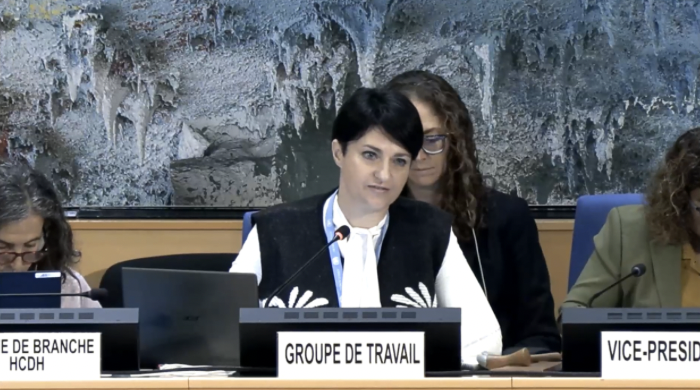
Gabriella Citrone started her concluding remarks highlighting the importance of dialogue, and encouraged all States to pursue this dialogue not only in this room but also afterwards.
She took note of some of the concerns that have been expressed and reassured that the Working Group has no political agenda, abides by the code of conduct, and acts in good faith. She emphasised that she was happy to hear from Venezuela and Belarus, because the Working Group had been trying to engage but unfortunately without any response.
The Chairperson confirmed that the Working Group had been in contact with those States that expressed concerns. Cases where there have been misspelling of names or other misunderstandings were easily clarified.
She summarised that this dialogue demonstrated that enforced disappearances remain a global concern that is ongoing, that is not a phenomenon from the past and that continues occurring in certain countries on a massive scale. She reiterated that it can be considered a crime against humanity or as genocide.
In response to the question posed by Australia on behalf of a group of States in terms of early warning and prevention, she highlighted the importance of codifying enforced disappearances as a stand-alone crime. She explained that this has a deterrent effect and enables accountability. Gabriella Citrone commended the countries that have codified enforced disappearances as a stand-alone crime, in particular Thailand, Lithuania, Burkina Faso and Costa Rica. She offered Ghana support in its process of adopting or codifying enforced disappearances as a stand-alone crime.
Gabriella Citrone highlighted concrete measures to be undertaken from early registration, maintenance of records, and updated records that are accessible from the outside. She encouraged steps to strengthen cooperation, especially in mutual legal assistance and the legal cooperation as well as cooperation to provide support to families. This call for cooperation also concerns other subjects other than States, for example business enterprises and financial institutions.
She welcomed the attention and interest shown in the thematic report by the European Union, the African Group, Ghana, and Benin for the report on the enforcement appearance of defenders in the context of defence of land, natural resources and environment. She pointed out that on the 22nd of September at 3:00 p.m. in room 9 the Working Group will have a side event to present the report.
She added the importance of search for disappeared persons and early mechanisms to find those who have disappeared, hopefully alive and without having to take measures to fight against enforced disappearances.
Gabriella Citrone reiterated that the Working Group has provided technical cooperation to Chile, the search unit in Colombia and in Peru, and will continue to provide this kind of cooperation to other countries.
To answer how to promote accountability and to fight against the phenomenon of transnational repression, she drew on the findings of the presented study on the use of universal criminal jurisdiction. She underscored the importance of strengthening the legal framework, establishing specialised units, training the personnel and ensuring the participation of victims.
Gabriella Citrone concluded her final statement by declaring that the Working Group joins other mandate holders in denouncing the U.S. Government sanctions on the Special Rapporteur on the Occupied Palestinian Territories, Francesca Albanese. She stated that sanctioning a special rapporteur appointed by the Human Rights Council violates international law and is a direct attack on the integrity of the UN human rights system including spatial procedures as a whole. She called on all States to act decisively to denounce these sanctions and refuse to carry them out. Additionally she also called on the United States of America to immediately withdraw these illegal sanctions.
Position of Geneva International Centre for Justice
Geneva International Centre for Justice (GICJ) supports the recommendations made in the report and by the Chairperson, particularly strengthening legal and institutional frameworks to prevent enforced disappearances. This includes amending domestic legislation and codifying enforced disappearances as an autonomous offence as well as establishing specialised institutions. Furthermore enhancing international cooperation and enabling joint inter-State investigations teams is crucial in fighting against enforced disappearances.
Geneva International Centre for Justice (GICJ) opposes the persistent use of enforced disappearances across the globe. This practice constitutes a violation of international legal norms and, in certain contexts, rises to the level of a crime against humanity. Particularly concerning is that enforced disappearances occur not just in conflict or authoritarian settings, but also in contexts where rule of law is considered stronger. The Working Group points to deficiencies in legal frameworks, delays in investigations, lack of access to judicial remedies, and weak preventive measures.
GICJ urges all nations to take decisive and immediate action. Firstly by strengthening legal frameworks: ratifying the International Convention for the Protection of All Persons from Enforced Disappearance, including it as a stand-alone crime in national legislation and removing procedural obstacles to its prosecution. Secondly, strengthening institutional frameworks: Ensure independent investigations are conducted, and cooperate with international mechanisms. Thirdly, ensure the protection and participation of victims' families, and guarantee reparations and psychosocial support for survivors and affected families.
GICJ further calls on the international community to intensify diplomatic and legal pressure on States that continue to resort to enforced disappearance.
GICJ delivered a joint statement that contextualised the ongoing human rights crisis in Yemen. The statement sought to advocate for the dignity and rights of the Yemeni people. The joint statement highlighted several instances of human rights breaches by Houthis against the Yemeni people; including the abduction of Yemeni political figures, the abduction of UN authorities and the abduction of children to be used as soldiers. The statement concluded by encouraging them to continue supporting the Yemeni people through monitoring the situation in the country and establishing effective legal mechanisms.
#HRC60 #EnforcedDisappearance #Geneva4Justice #GenevaInternationalCentreforJustice #GICJ
REFERENCES
[1] Office of the United Nations High Commissioner for Human Rights (OHCHR) (2009):
Enforced or Involuntary Disappearances (Fact Sheet No. 6/Rev.3).
[2] Medawatte, Danushka (2017): The Vanishing Act: Punishing and Deterring Perpetrators
through the Concurrent Application of Diverse Legal Regimes to Enforced
Disappearances. In: Florida Journal of International Law, 29, p. 227-252.
[3] Aguilar, Paloma; Kovras, Iosif (2018): Explaining disappearances as a tool of political
terror. In: International Political Science Review, p. 1-32.
[4] Office of the United Nations High Commissioner for Human Rights (OHCHR) (2025): Working Group on Enforced or Involuntary Disappearances. URL: https://www.ohchr.org/en/special-procedures/wg-disappearances
[5] Office of the United Nations High Commissioner for Human Rights (OHCHR) (2025): International Convention for the Protection of All Persons from Enforced Disappearance. URL: https://www.ohchr.org/en/instruments-mechanisms/instruments/international-convention-protection-all-persons-enforced




